Building Evidence
5. Data Policy and Practices
Connecticut
Leading Example
The Chief Data Officer, along with individual agency data officers, is required to biannually update the state data plan, which covers open data and creates data standards for agencies. The plan also contains 11 principles and accompanying practices that all agencies should adopt to improve their management, use, sharing, and analysis of data. In addition, a 2019 law recommends: 1) establishing a coordinated governance structure for cross-agency data sharing, and 2) implementing cross-agency data-sharing agreements that are more flexible and durable. Building on this report, Connecticut released a Data-Sharing Playbook and developed an enterprise memorandum of understanding to help agencies share data safely, securely, and ethically.
Connecticut integrated principles on ethics and equity into data collection as well. Enacted in 2021, Public Act (PA) 21-35 set a goal “to attain at least a seventy percent reduction in the racial disparities set forth in subdivisions (1) to (4), inclusive, of this subsection from the percentage of disparities determined by the commission on or before January 1, 2022.” It mandates the Office of Health Strategy (OHS) to develop race, ethnicity, and language (REL) data collection standards to support the Commission on Racial Equity in Public Health’s mission to create a comprehensive strategic plan to eliminate health disparities and inequities across sectors.
Connecticut expanded the coverage of the state longitudinal data system, P20 WIN, in 2021. Ten state agencies and the Office of Policy and Management completed the development of a multi-party interagency agreement to preserve privacy while improving data sharing, as part of the expansion of the P20 WIN state longitudinal data system. The interagency agreement develops the legal and governance framework for interagency data sharing and was promoted by the attorney general as a ‘uniform interagency data sharing protocol.’ The enterprise agreement is paired with individual data sharing agreements for the primary legal and regulatory frameworks used by agencies.
Promising Examples

Arizona
Arizona
As part of the Arizona Strategic Enterprise Technology Office, the State Data Management Architect establishes data governance policies that address technology; security; privacy; and communication strategies, policies, and procedures. Arizona operates under a statewide data-sharing memorandum of understanding. Implemented in 2019 and signed by 29 agencies, the MOU facilitates data sharing between agencies to support state-administered programs. These 29 agencies comprise the State Data Interoperability Council, which meets quarterly to focus on “reducing risk, maximizing efficiency, increasing the value of data exchanges and ensuring that systems are developed and maintained in accordance with Statewide and Budget Unit (BU) strategic plans.”

California
California
California’s statewide open data policy (2019) encourages departments to share data in standard and accessible formats through the California Open Data Portal. In 2022, California published a new, user-friendly, simplified Open Data Handbook, to help improve consistency in data publishing, and encourage collaboration, transparency, innovation, and effectiveness.
In Spring 2021, all entities under the Governor’s authority signed a single Interagency Data Exchange Agreement (IDEA), an umbrella memorandum of understanding (MOU) that is intended to facilitate data exchange between state entities in California, while ensuring that the exchange is legal and secure. Under IDEA, signatory entities draft a Business Use Case Proposal (BUCP) that details the specifics of their data exchange. IDEA is supported by detailed handbooks, a community of practice, and a resource library.
In summer 2021, California passed legislation to create the California Cradle-to-Career Data System; since then they have signed data sharing agreements, developed data elements for the integrated data system as well as robust governance procedures. They are also engaging in many other activities to ensure data is actionable and community centered.
To expand the exchange of health information among health care entities, government agencies, and social service programs, CalHHS is developing a Data Exchange Framework (AB 133). They have produced guiding principles, policies and procedures, and a single data sharing agreement signed by more 1,400 Health Care Organizations. The state has also launched the first of its kind integrated data system for people experiencing homelessness.
The Cross-Systems Analytics and Assessment for Learning and Skills Attainment (CAAL-Skills) is an interagency initiative that integrates data from workforce system partners.

Colorado
Colorado
A 2021 Colorado law modified many of the statewide data practices by specifying requirements regarding the creation of a data-sharing and privacy master plan and sharing of personal identifying information between state agencies. Moreover, it codified the “share first” expectation (24-37.5-704 C.R.S) for data sharing statewide, specifically that, except where prohibited by state or federal law, agencies are preemptively authorized to share data with other state agencies, legislative and judicial branches, political subdivisions, and non-governmental organizations. HB21-1236 requires each agency to conduct a data inventory with assistance from the Office of Information Technology and the Government Data Advisory Board (GDAB). GDAB is also tasked with creating data-sharing agreements, which is being accomplished through subcommittees established in 2022.
The Colorado Information Marketplace is the state’s open data repository with more than 2,000 datasets intended to increase government transparency. Beyond state open data, the Colorado Governor’s Office and the Colorado Evaluation and Action Lab co-designed the Linked Information Network of Colorado (LINC) to facilitate data sharing for research and analytics in 2019. The network is designed to share data across state agencies and provide de-identified data to perform robust, academically rigorous research to inform policy. LINC has a three-tier legal structure, which includes: (1) an enterprise memorandum of understanding (eMOU) signed by all data providers; (2) data-sharing agreements to secure, handle, and anonymize data for all LINC projects; and (3) data licenses with roles and responsibilities for users of LINC project data.
The Governor’s Office of Information Technology (OIT) has also established three new subcommittees (Data Governance, Data Sharing, and Data Inventory) which build on interagency collaboration to inform the GDAB on data policy best practices. In 2022, OIT published the Digital Government Strategic Plan which outlined the State’s vision for harnessing the data that we collect to build an ecosystem that puts customer service first.
OIT does not currently have a public-facing policy on equity in data sharing and management. However, OIT is dedicated to internal conversations on Equity, Diversity, and Inclusion in employment and personnel practices. This includes the implementation of an annual Equity, Diversity, and Inclusion (EDI) plan, and the expansion of training programs, coaching opportunities, and employee resource groups to promote inclusivity and support individuals from marginalized backgrounds. OIT acknowledges the significance of accessibility and is currently developing guidelines that will shape the organization’s technology solutions. On a cross-agency level, the Enviroscreen Tool, developed by CDHPE, generates “scores” using disaggregated census and environmental data to measure environmental impacts on disproportionately impacted communities. The department works with communities and other agencies to be transparent and accessible in this data for better decision-making rooted in environmental justice principles.

Delaware
Delaware
In January 2018, with support from the AISP Learning Community initiative, key members of the Delaware Governor’s Family Services Cabinet Council (FSCC) began collaborating to develop the Delaware Integrated Data System (DIDS) to jointly use information from multiple agencies that provide services to Delaware’s families. The primary goals of the DIDS are to link disparate data from numerous state programs and develop predictive analytics to help verify best methods for providing meaningful assistance. According to the launch announcement: “the system will help Delaware coordinate services and support young people and families in Wilmington who are at high risk of violence, and bolster the ongoing work of the Family Services Cabinet Council.” DIDS is hosted by the Delaware Department of Health and Social Services and the Department of Technology & Information (DTI). DTI is also home to Delaware’s Open Data Portal which supports data sharing with the public and currently has 374 datasets available.

Florida
Florida
Florida’s PK-20 Education Data Warehouse provides public access to data linked across elementary and secondary education, university, and workforce outcomes. This comprehensive longitudinal data system supports the state’s Workforce Innovation and Opportunity Act (WIOA) plan’s commitments to evidence-based professional development and continuous improvement.

Georgia
Georgia
The Georgia Data Analytics Center (GDAC) was established by House Bill 197 (2019 session) to build a centralized data hub for Georgia. GDAC was tasked to enable and empower policy makers, legislatures, state agencies and operational leaders with timely access to accurate data. GDAC’s objective is to support policy development that will improve operational efficiencies in Georgia; and provide data transparency and accountability within the state. Since enactment of HB197, GDAC has established a modern data analytic center capable of securely harvesting, integrating, anonymizing, and aggregating data. GDAC’s award winning platform has attained several milestones and accomplishments within two years:
- GDAC has established a data governance committee; formalized several state agency data partnerships and data sharing agreements. GDAC will continue to work with state agencies to establish additional data sharing agreements and serve their user needs. For example, in FY2024 GDAC will focus on HB1013 and agencies listed in this house bill with a focus on child care and protection.
- GDAC’s government modern cloud organization will facilitate data democratization. GDAC’s modern data architecture is fast, flexible, secure, and scalable. This architecture along with repeatable and scalable data engineering processes allow for greater monitoring, auditing, and logging capabilities. HIPAA compliance is enabled; service control policies and guardrails enforced; continual security alarms and alerts are monitored with support from Georgia Technology Authority.
- GDAC has published several data visualizations and reports publicly and internally within a short time frame to support policy makers and improve operational efficiencies in Georgia.
- GDAC gives state agencies the opportunity to submit use cases for data analysis and visualization. GDAC partners with these agencies to aid in assistance of more complex issues such as healthcare access, child health outcomes, automating outdated practices, etc.
Digital transformation began in Georgia with GDAC’s modern data analytics platform.

Hawaii
Hawaii
The State of Hawaii’s Open Data portal provides residents, analysts, and civic developers with unparalleled access to State data for use in increasing transparency, driving civic innovation, and engaging participants in a more collaborative form of government. Visitors to the site will find over 150 datasets organized by six major topics, with more datasets continuing to be added to the site:
- Culture and Recreation
- Economic Development
- Employment
- Environmental Protection
- Formal Education
- Government-wide Support
House Bill 1885, signed in June 2022, states that each executive branch department, including the department of education and University of Hawaiʻi, shall use reasonable efforts to make appropriate and existing data sets maintained by the department electronically available to the public through the State’s open data portal.

Illinois
Illinois
The Illinois Department of Employment Security, Illinois Student Assistance Commission, Illinois Board of Higher Education, Illinois Community College Board, and Illinois State University have partnered to share workforce, financial aid, and university data for the Illinois “College2Career” resource. The integrated data platform highlights outcome metrics such as average earnings, earnings growth, and job stability for graduates of Illinois institutions of higher education. The program seeks to use these data to help Illinois students make informed education and workforce decisions.

Indiana
Indiana
The Indiana Management Performance Hub (MPH), overseen by the state’s Chief Data Officer, houses the integrated Education and Workforce Development database, which brings together data from 12 state agencies, including: the Commission for Higher Education, Department of Education, Department of Health, Department of Corrections, Department of Workforce Development, and Family and Social Services Administration. In addition, MPH has created integrated databases to address pressing program and policy issues related to COVD-19, opioids, Medicaid, fiscal transparency, and other areas. Indiana’s open data is shared through the Indiana Management Performance Hub’s Indiana Data Hub, as well as a publicly available data catalog. It has more than 180 publicly available open datasets on various topics. MPH has been at the forefront of using data to drive decision-making for Indiana’s COVID-19 response, including a study to better understand the prevalence of the coronavirus and/or its antibodies. Moreover, MPH has undergone infrastructure improvements since 2020. For example, the Enhanced Research Environment (ERE) has supported Indiana’s data-driven response to the COVID-19 pandemic. The ERE, a secure collaboration environment, expedites research and analysis by bringing research teams to leverage data for action for the pandemic response and is structured to provide value to a multitude of data initiatives.
The Indiana Data Partnership, launched in 2019, brings together government, nonprofit, and private sector entities to share data, talent, and technology to solve key challenges impacting Indiana residents. The partnership was formed as an extension of the Indiana Management Performance Hub to create a secure, replicable, and sustainable framework to help partner organizations use shared data in coordinating efforts and maximizing holistic solutions. Initial projects included combating the opioid epidemic, improving education and workforce development, mapping local health delivery, and a networking analysis.

Iowa
Iowa
Iowa’s Integrated Data System for Decision-Making (i2d2) is an integrated data system, overseen by a governing board and coordinated among health, social service, and education agencies, that comprehensively identifies and addresses the needs of Iowa’s young children and families. Since launching in 2016, i2d2 has been used to better understand early childhood service utilization and the early childhood workforce, including supporting a comprehensive statewide needs assessment as part of a Preschool Development Grant B-5.

Kentucky
Kentucky
The Kentucky Center for Statistics (KYSTATS) collects and links high-quality, actionable data from six state agencies to improve education and workforce programs in the state. KYSTATS has a data request hub, which includes a data access and use policy, data-sharing agreement, and a data dictionary to facilitate the exchange of data with requestors. KYSTATS also has a Security Policy that contains procedures for securing the confidentiality of the data maintained by KYSTATS.
A 2013 Kentucky law established the Kentucky Center for Statistics (KYSTATS), which collects and links high-quality, actionable data from six state agencies to improve education and workforce programs in the state. By providing data sets, publishing reports, and fulfilling research requests, the center provides state-specific insights with appropriate data privacy and data access controls. It has more than 40 staff members who are dedicated to “developing reports, responding to research requests, and providing statistical data about these efforts so policymakers, agencies, and the general public can make better-informed decisions.” The Center is run by an executive director with oversight from a board composed of participating state agencies, and the center has developed a research agenda for 2023-2025 focused on issues of equity.

Maryland
Maryland
The State Chief Data Officer, in collaboration with Agency Data Officers, developed the State Data Strategic Plan and the State Data Governance Framework. The statewide data terminology/glossary, data literacy program, and data sharing programs can be found at the CDO website.
In 2019, Maryland unveiled an updated open data portal with an expanded catalog of data covering education, health, criminal justice, child welfare, workforce, and economic mobility. The state’s Council on Open Data governs the portal and meets on a quarterly basis to coordinate, plan, and promote Maryland’s open data, regularly publishing its agenda and minutes. In addition, the Maryland Transparency Portal provides information about the state’s operating budget, state grants, and payments to vendors.
Maryland’s Total Human-services Integrated Network (MD THINK) is a cross-agency collaboration between the Department of Health, Department of Human Services, Department of Juvenile Services, MD Health Benefit Exchange, and the Department of Public Safety and Correctional Services. Through this cloud-based platform, MD THINK is designed to improve delivery of human services statewide by streamlining a variety of state agency interfaces into a single sign-on platform for residents, while also reducing costs and burdens associated with the technical, legal, and policy coordination of multiple data and services delivery platforms. The solution enables residents to apply for and manage a host of integrated health and human services. For example, a family on Medicaid and receiving Temporary Assistance for a Disability may also trigger an alert for Supplemental Nutrition Assistance and other emergency social services.

Minnesota
Minnesota
In the interest of transparency and improving outcomes for publicly funded programs, a Minnesota statute, the Minnesota Government Data Practices Act, establishes the state’s policy for sharing data with nonprofit organizations, academic institutions, and local government agencies. This publicly available policy indicates that all government data collected, created, received, maintained, or disseminated by a government entity shall be shared unless such sharing is otherwise precluded by federal law or a more specific state statute.
Minnesota has robust technology infrastructure with appropriate privacy controls for internal and external data sharing. Examples of public portals include the Minnesota Geospatial Commons, Transparency Minnesota, and the Statewide Longitudinal Education Dataset.
Minnesota’s Statewide Longitudinal Education Data System and Early Childhood Education Data System match administrative education and employment data from five state agencies. Together, these two systems form a P-20 education data system, which captures, analyzes, and uses student data from preschool to high school, college, and the workforce. The agencies created a public tool to allow for analysis of aggregate-level educational data, including the ability to look at disparities in educational achievement, college graduation rates, employment, and other indicators.
Minnesota Management and Budget’s Results Management team has established data sharing agreements with state agencies to provide secure access to large data sets covering topics including, among others, public health, behavioral health, healthcare claims, criminal justice, and public assistance.
To address concerns raised by Minnesota families through the course of applying for government services, four state agencies and the Attorney General’s Office developed a joint powers data sharing agreement. This agreement allows state agencies – operating more than 30 programs – to better serve children by allowing participating state agencies to share eligibility information of families to connect them with services for which they may be eligible and communicate with them on how to apply for and access those services seamlessly.

Mississippi
Mississippi
Mississippi LifeTracks is an interoperable data system, governed by an interagency board, that supports research and analysis by providing linkages among early childhood, K-12 education, postsecondary education, and workforce data to improve career-readiness outcomes for students.

Nevada
Nevada
The Nevada P-20 to Workforce Research Data System integrates data from the state’s PK-12, higher education, and workforce agencies. With a commitment to data privacy, the system leaves all private data behind agency firewalls and uses an algorithm to de-identify data during the matching process. A wide variety of reports provide agency leaders greater insights into Nevada’s education and workforce programs, initiatives, and outcomes.

New Jersey
New Jersey
To combat incomplete or inconsistent data, New Jersey has set up asset level and column metadata standards for the datasets available on Data.NJ.Gov, the state’s open data portal.
New Jersey partners with Rutgers, the state university of New Jersey, to operate the New Jersey Education to Earnings Data System (NJEEDS), a statewide longitudinal data system designed to improve the performance of state education and workforce initiatives. NJEEDS is overseen by an executive leadership council and convenes a data stewards work group from relevant state agencies. Four state agencies also partner with Rutgers to operate the Integrated Population Health Data project to promote population health research.
New Jersey has technology infrastructure to support data sharing and usage, across agencies, with external partners, and with the public. For cross-agency data sharing and use, the New Jersey Office of Information Technology (NJOIT) maintains an enterprise data warehouse, consisting of the New Jersey Administrative Warehouse System and agency-specific data marts. In addition, NJOIT maintains a business intelligence reporting service that allows the State’s executive branch agencies to analyze and report on data from both data warehouse and data mart infrastructures. Through collaborative efforts and the use of compelling data dashboards, the CDO’s office has empowered policymakers to make informed decisions, leading to a more data-driven government. The NJ Economic Insights database is an internal resource that provides weekly information on consumer spending, business revenue, and mobility data on a weekly frequency by census tract. State agencies use this data to continue to monitor and understand the ways in which New Jersey’s recovery from the pandemic progresses.
The New Jersey Open Data Portal harnesses the power of reusability and modularity to create a centralized layer of application programming interfaces (APIs) that connect data and libraries of software components to enable rapid development of applications across the enterprise. In this model, application development becomes less about building new functionality from scratch, and more about orchestrating existing, complementary functionality to drive scale and scope.

North Carolina
North Carolina
The North Carolina Office of State Budget and Management operates Log Into North Carolina (LINC), an interactive data retrieval service containing historical NC data at a variety of geographic levels. LINC includes over 1,500 data series with 10M records and a subdomain for the State Demographer platform, which houses the latest data produced by the North Carolina Demographer. LINC showcases the most sought-after data state agencies own across a variety of topics. It allows for easy visualization of the data, as well as the ability save the visualization for registered users.
The Government Data Analytics Center (GDAC) operates as a division of the North Carolina Department of Information Technology. GDAC works to transform data into information that facilitates decision support, increases operational efficiencies, and improves outcomes for North Carolina residents by integrating and sharing data assets. Activities and resources include:
- GDAC has deployed statewide Enterprise Entity Resolution (pp. 24-27) infrastructure and processes to match entities or cluster individual record data across disparate data sources to a common entity (e.g., single person, single business). As such, the platform enabled extensive records matching that improved the state’s public health response to COVID-19 and analysis of identity theft associated with unemployment benefit recipients.
- The North Carolina Early Childhood Integrated Data System (NC ECIDS) is a single source for integrated early childhood data for selected education, health, and social services programs to help answer key policy and program questions and fulfill research requests that support state priorities for young children and families.
- The North Carolina Longitudinal Data Service (NCLDS) links early childhood, education, and workforce data—from the North Carolina Department of Health and Human Services, North Carolina Department of Public Instruction, North Carolina Community College System, University of North Carolina System, North Carolina Independent Colleges and Universities, and North Carolina Department of Commerce—together to facilitate cross-sector, longitudinal research, and evaluation. The Executive Director of the NCLDS directs this data linking work to provide knowledge that can inform decision-making for the state’s P-20 education systems, improve educational attainment, and support workforce objectives.
In addition to the statewide examples above, many North Carolina state agencies have developed user-friendly policies and practices around data sharing, linkage, and access.

Ohio
Ohio
The InnovateOhio Platform (IOP) was launched in 2019 via Governor Mike DeWine’s Executive Order 2019-15D, and features a set of core principles based on the concept that data is a shared strategic asset for operational and analytical purposes. The executive order resulted in a standardized ‘Data Use Agreement’ to expedite data sharing. In addition, the state has documented enterprise Data Governance policies to promote secure data sharing. All IOP projects are conducted under legally binding data use agreements. These agreements outline detailed guidelines for contractors and state so that data ownership and decision-making remain with the agencies.
Today, IOP Data Analytics has more than 1,000 datasets from 30 agencies which, through secured and governed structures, are available for shared collaboration. IOP has partnered with agencies to support 147 data analytics projects, with another 46 projects in progress.
Ohio is committed to transparency. The Lieutenant Governor announced the launch of the DataOhio Portal (DOP) in December 2020; more than 300 datasets from 100+ State programs have been viewed 350,000+ times. DOP offers data management, data integration, and applied analytics. The portal provides decision-makers and partners with flexible self-service capabilities to support innovative solutions to the complex problems that Ohio residents face.
In 2023, IOP Data Analytics:
- Enhanced its data governance dashboards by providing one secure location for agencies to monitor “who can access their data” on the IOP and “how it is being used.”
- Launched an enterprise data catalog, which enables data owners and data stewards to manage their data and expedite enterprise data discovery.
- Deployed a data quality and profiling tool that makes it easy for agency data teams to analyze datasets for completeness and integrity.

Oklahoma
Oklahoma
Oklahoma’s Open Data is a service designed to provide Oklahomans with deep access to data and statistics about the activities of Oklahoma’s government. It’s a simple way to explore data about the economy, public health, transportation, the environment, and more, all on one Website.
By posting state government data in raw, machine-readable formats, it can be reformatted, repurposed, and reused in different ways, allowing the community at large to build custom applications in order to analyze and display the information. The centralized, open-format nature of the database allows anyone to create mashups and visualizations, build applications, conduct analysis and perform research.
Oklahoma’s Open Data was first created as a part of H.B. 1086- the Transparency, Accountability and Innovation in Oklahoma State Government 2.0 Act of 2011. The bill was signed into law May 20, 2011, with the goal of providing Oklahomans with unprecedented access to government.
Numerous agencies and entities contribute to Open Data. Some examples of available data include:
- Payroll information for state employees
- Crime statistics
- State expenditures on outside vendors
- High school and university graduation rates
- Rates of health problems, such as cancer, heart disease and diabetes
- Lists and maps of state parks
- Air and water quality assessments

Oregon
Oregon
Published in February 2021, Oregon’s statewide 2021-2023 data strategy and data strategy website identify high-level principles and practices for how the state will effectively and ethically use data, including collection, use, design, community engagement, and transparency. The state continues working toward the actions identified in the data strategy’s biennial action plan pursuant to a 2017 law.
Codified by state statute in 2017, Oregon’s Open Data Program allows state agencies to inventory, prioritize, and publish open datasets to improve transparency and internal data sharing among state agencies and government partners. Oregon’s Open Data Program Resources links contain information on the state’s Open Data Standard, webinars held by the Chief Data Officer, and external tools and resources.
A 2017 Oregon law requires the Chief Data Officer to create an enterprise memorandum of understanding to facilitate data sharing across state agencies. To support this approach, the Chief Data Officer has convened integrated data users and leaders from across the state. The State Longitudinal Data System, launched in 2018, brings together education and workforce data. The Trauma-Informed Pilot Project identifies areas of inequities for increased funding. To further advance this data integration across the state, a 2021 state law created a “system of care advisory council” responsible for integrating appropriate data to help determine holistic care and support needs within health, education, public safety, and other program services. The System of Care Council has produced an initial version of a system of care dashboard to identify youth served within Oregon’s systems of care.

Pennsylvania
Pennsylvania
The Governor’s executive order on open data, data management, and data governance, first issued in 2017 and amended in 2019, states that data shall be shared internally and externally, whenever possible unless restricted by federal, state, or other statutes or regulations or by policies, standards, or best practices that prohibit the sharing of specific data, in order to foster innovation, cooperation, and transparency. In 2017, the state also created an enterprise data-sharing memorandum of understanding (eMOU), providing a more efficient process to obtain and provide data by, between, and among Commonwealth agencies. When it comes to sharing geospatial data in particular, the Pennsylvania State Geospatial Board has a publicly available data-sharing agreement to facilitate the sharing of data between government entities and non-state data owners, including academia, business, and nonprofits. The impact of data sharing is reflected in the board’s annual reports and special reports on state and local data sharing, importance of broadband access, COVID-19 response and recovery efforts, and land use and transportation planning.
Use of the PA Open Data Portal continues to increase each year. Currently available datasets, stories/visualizations, and other open data pages can be accessed by the public through the portal’s data catalog.
In July 2021, DOH launched the agency’s Data Modernization Initiative (DMI), a comprehensive, multi-stakeholder initiative to improve data sharing and quality standards within DOH and with the department’s external partners. Goals include redesigning data management systems across the agency, developing a data governance model, and coordinating the implementation of best practices for data creation, maintenance, and sharing.

Rhode Island
Rhode Island
In June 2023, Governor Dan McKee signed the Rhode Island Longitudinal Data System Act into law. Among the various components of the law, it requires the newly established Rhode Island Longitudinal Data System (RILDS) to publish a plan by November 2023 outlining the optimal approach to establishing a comprehensive statewide integrated data system, which will address the importance of public transparency and data sharing.
Presently, the Rhode Island Ecosystem is an analytic system, managed by the Executive Office of Health and Human Services, that links data at the person and family level across state agencies to drive holistic improvements in human well-being. An inter-agency memorandum of understanding (IMOU) outlines the data-sharing process and permissible uses for cross-agency data. Several high-impact uses have been conducted, including projects focused on opioid use disorder and child maltreatment prevention. More recently, the ecosystem has collaborated with partners in state government to support a public dashboard that tracks Rhode Island COVID-19 cases and response, as well as internal daily dashboards for the Governor and other high-level policymakers on system capacity.

South Carolina
South Carolina
The South Carolina Revenue and Fiscal Affairs Office maintains an integrated data system, a data warehouse that links data from individuals being served by more than 20 state agencies and other organizations. This system has facilitated program improvement efforts and numerous research studies, including a randomized controlled trial (RCT) as a part of the state’s Pay for Success initiative to improve outcomes for low-income mothers and their babies. South Carolina has continued to expand its evaluations, including an RCT on the impact of Managed Care Organizations. In 2020, the state shared its updated report on how it would utilize the integrated data system to support COVID-19 Response.

Tennessee
Tennessee
Tennessee leverages a longitudinal data system, P20 Connect TN (“P20”), to link education, workforce, human services, children’s services, and economic development data at the individual level to produce insights for programmatic investments. Templatized data sharing documents and policies have been in place since 2017 and have facilitated over 100 external and internal data use projects since P20’s creation. For example, Tennessee has leveraged its external research partnerships and P20 to evaluate statewide education and workforce development policies and programs, including Career and Technical Education, Tennessee Promise, Tennessee Reconnect, Reverse Transfer, and Adult Education investments through federal WIOA funding. Additionally, P20 has been integral to some of the state’s most ambitious initiatives for postsecondary attainment and workforce alignment, and partnering state agencies use it regularly to produce reports like the Department of Education’s Report Card and the workforce Supply and Demand report.
Tennessee’s templatized data sharing documents and long-established governance policies have also enabled a rapid expansion of data integration and sharing with additional state agencies. In 2023, the Tennessee Office of Evidence and Impact (OEI) established memoranda of understanding with the Tennessee Department of Health, Tennessee Department of Mental Health and Substance Abuse Service, the Division of TennCare, and the Tennessee Department of Correction to integrate individual health and criminal justice data in the new cloud-based TN DATA integrated data system.

Texas
Texas
The Texas Education Agency (TEA) administers the Texas Student Data System, a statewide platform for collecting, managing, sharing, and reporting state education data. The system has a data standards and data governance process. Additionally, the Workforce Information System of Texas (TWIST) links data across workforce funding streams for intake, eligibility determination, and reporting on programs such as the Supplemental Nutrition Assistance Program (SNAP), Employment and Training, and the Workforce Innovation and Opportunity Act plan. Both these data platforms are used to assess grantee performance, identify common issues that could benefit from collaborative approaches, and understand residents’ needs. Texas Workforce Commission (TWC), Texas Higher Education Commission and Board (THECB), and Texas Education Agency (TEA) signed a single comprehensive MOU for data sharing between the three agencies in July of 2022.

Utah
Utah
Utah’s open data portal was established in 2014 and is managed by the State Open Data Coordinator under the Chief Technology Officer. The open data portal includes over 8,000 datasets from federal, state, county, and city agency sources. Public data and dashboards may also be found across several state and agency websites, including: Department of Workforce Services, Department of Transportation, COVID-19, Department of Environmental Quality, and Utah Health Care Compare.
In 2023 Utah Governor Cox also issued executive order 2023-01 which established a task force on state agency collaboration and data sharing, chaired by the executive director of the Department of Health and Human Services. The task force will deliver an action plan by August 30, 2023 including specific steps to strengthen collaboration and expand information sharing across entities in order to research, evaluate, and improve service delivery for constituents.

Virginia
Virginia
In 2020, a Virginia executive order established data governance bodies to improve data sharing between state agencies and localities. The executive order implements the recommendations from the 2019 publication Data Sharing and Analytics Governance Structure for the Commonwealth of Virginia Report. The Virginia open data portal also features resources on data use, a data dictionary, and an open data catalog.
In 2020, Virginia utilized its existing Framework for Addiction Analysis and Community Transformation (FAACT) to share new data and provide actionable information as part of the state’s COVID-19 response. FAACT – a cross-agency, cloud-based, data-sharing and analytics platform – was previously used as part of the state’s work on the opioid crisis to generate actionable insights about the contributing factors to opioid abuse, as well as to collate the most effective community responses.
Amid the COVID-19 pandemic, Virginia’s workforce system launched an improved integrated data system in 2020, governed by a data trust, that improves user experience through the new Virginia Career Works Referral Portal. The related Virginia Career Works Dashboard is a data visualization tool that conveys information about labor conditions and allows agencies to make real-time, data-driven decisions. These innovative systems demonstrated a potential cost savings of more than 94% over traditional approaches.

Washington
Washington
The Washington State Department of Social and Health Services Research and Data Analysis (RDA) division provides policymakers with data and analyses to improve the effectiveness of services for clients. RDA maintains integrated client databases, which bring together data from 10 state agencies, 40 separate data systems, and individuals receiving services through publicly funded health and human services programs in Washington. Among many other applications, predictive modeling and clinical decision support tools developed and maintained in RDA’s integrated data environment have been used by the state’s Health Home Program to generate tens of millions of dollars in performance payments from the U.S. Centers for Medicare and Medicaid Services, as the result of improved care management for persons dually enrolled in Medicare and Medicaid.
The Education Research and Data Center (ERDC), integrates data across multiple education, workforce, other state agencies, and institutions to conduct collaborative analyses from early learning through postsecondary education and training and into the workforce. ERDC brings together more than a dozen partners to compile education and workforce data to improve student achievement and workforce outcomes. The ERDC is directed to provide research that focuses on student transitions within and among the early learning, K-12, and higher education sectors in the P-20 system. The ERDC shares data with the education and workforce agencies and shares education and workforce data with external data requesters proposing to audit or evaluate state or local education programs.
The Washington State Institute for Public Policy (WSIPP) maintains and uses a criminal history database that links records across courts, adult corrections, and juvenile rehabilitation over time. This database allows the institute to investigate long-term outcomes for individuals in the state who participated in state-funded initiatives and programs related to criminal justice and juvenile rehabilitation. Recently, this database was used to examine the effectiveness of Washington State’s Drug Offender Sentencing Alternative.
